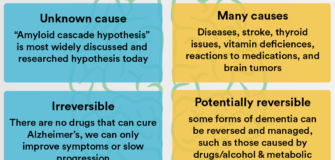Inclusive Aged Care for Older Trans and Gender Diverse People –Who are Trans Older People
Share
This is the first in a series of brief papers on how to make your services and practice inclusive of trans older people.
What does Trans mean?
Trans is often used as an umbrella term to describe a range of people whose gender identity or expression is different to the sex assigned to them at birth. Some people may refer to themselves as trans whereas others identify as a man, woman, non-binary, gender fluid, gender diverse or use other words or terms. Some cultures have specific words; for example in Australia in some indigenous communities there are brotherboys and sistergirls. Trans or gender diverse people are not homogenous and they have the same diversity of sexualities as everyone else.
Lifetime experiences of discrimination, rejection, exclusion and transphobia impacts on the health and wellbeing of older trans people who have higher rates of depression and anxiety than the general population. Trans people in general have higher rates of attempted suicide.i These experiences can be exacerbated where there are intersecting diversities, such as being Aboriginal and Torres Strait Islander, having a culturally diverse background or having a disability, resulting in further discrimination and exclusion. However, despite these experiences many older trans people are resilient and live happy and healthy lives.
Affirmation
Affirmation means different things to different people. For some, it may mean expressing themselves through the clothes they wear, for others “it means changing their name and informing people of their gender identity and preference to be described using the pronouns of that gender (‘she’, ‘he’ or ‘they’).ii For others it may mean surgeries and hormone therapies. But not all trans people ‘medically transition’ for a range of personal reasons and choices – there is no “one correct way” to be trans.
The experiences of affirmation later in life can be very different for those that identify as trans or gender diverse. For some older trans people, affirmation is viewed as the start of a new life however others “express regret about not seeking to transition earlier in life and a sense of running out of time”.iii Health issues related to ageing may also prevent older trans people from being able to access the full range of gender affirming interventions that they would like.
Useful Resources
Crameri, P, McGowan, I, Walton, R, Edmonds, S and Appleton, A (2019) “Becoming Colleen: Educational Resource for Ageing, Aged Care and Health Services Supporting Older People”, https://www.becomingcolleen.com/wp-content/uploads/2019/10/Becoming-Colleen-Training-Resource.pdf
Latham, J & Barrett, C (2015) “Gender is just part of who I am”: Stories from Trans Australians, https://www.opalinstitute.org/uploads/1/5/3/9/15399992/transnarrativeresource.pdf
Latham, J & Barrett, C (2015) “We’re people first”: Trans Health and Ageing: Summary – An Evidence-Based Guide to Inclusive Services, https://www.opalinstitute.org/uploads/1/5/3/9/15399992/transserviceguide.pdf
One of Australia's leading LGBTI inclusive strategists, policy makers and influencers with extensive knowledge and experience in assisting ageing, aged care and health providers develop LGBTI inclusive services.
Experienced National Project Manager with a demonstrated history of working in health, human rights & social organisations. Strong program and project management professional skilled in Government, Media Relations, Management, Non-Governmental Organisations (NGOs), Policy and Community Engagement.












